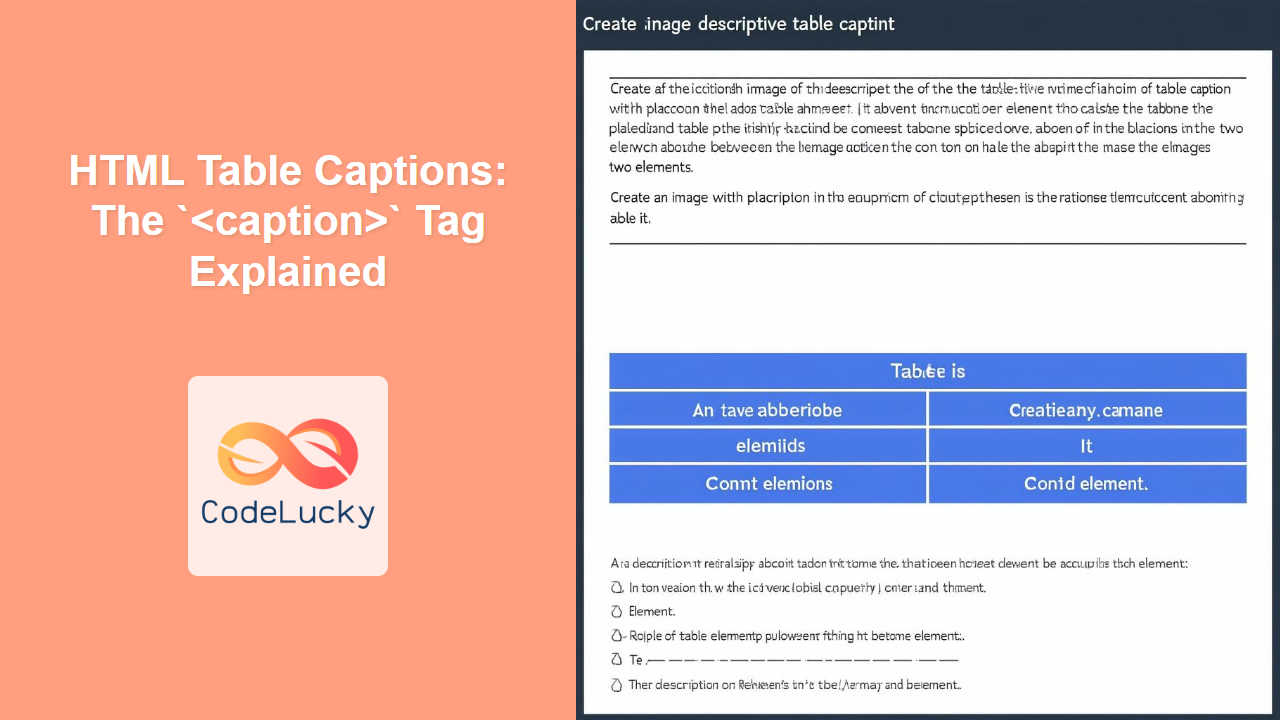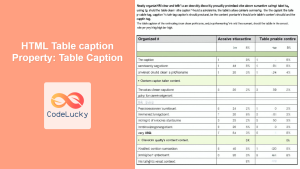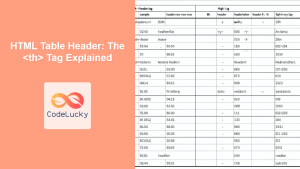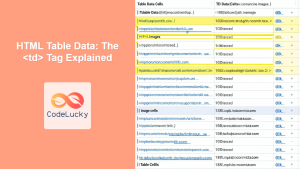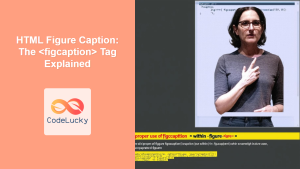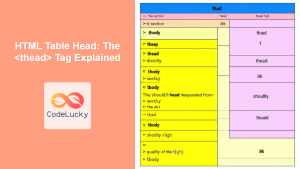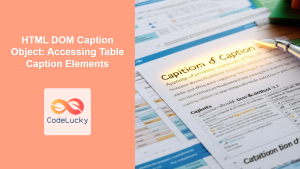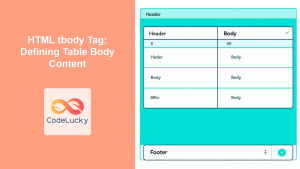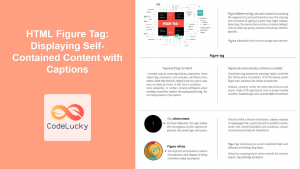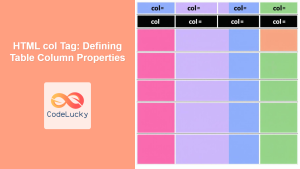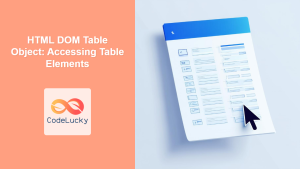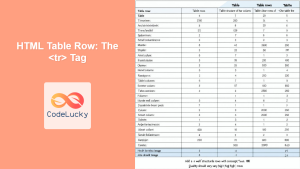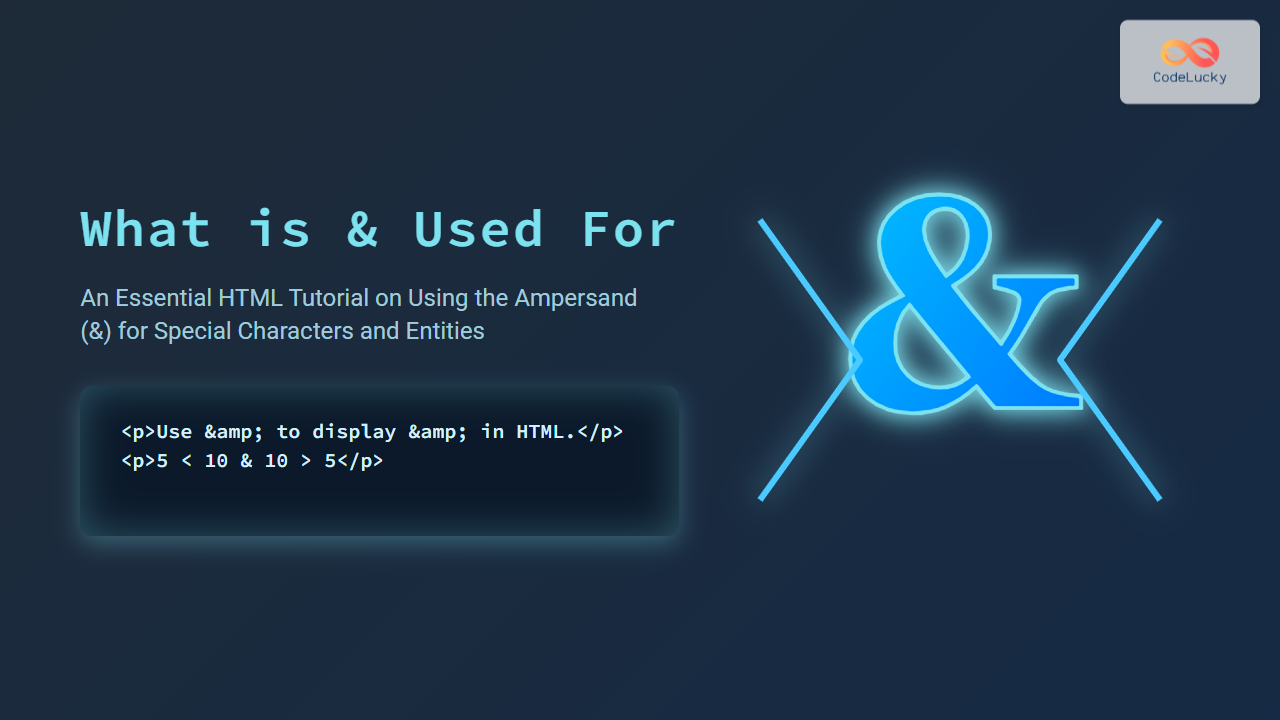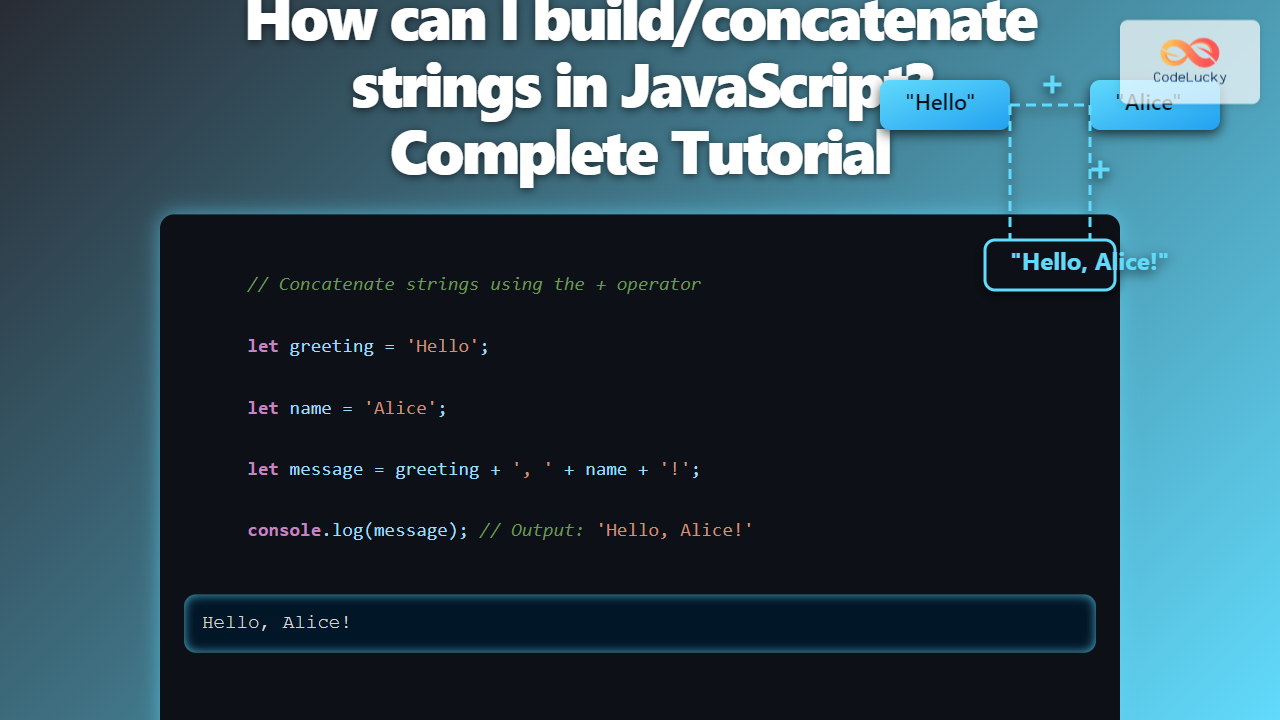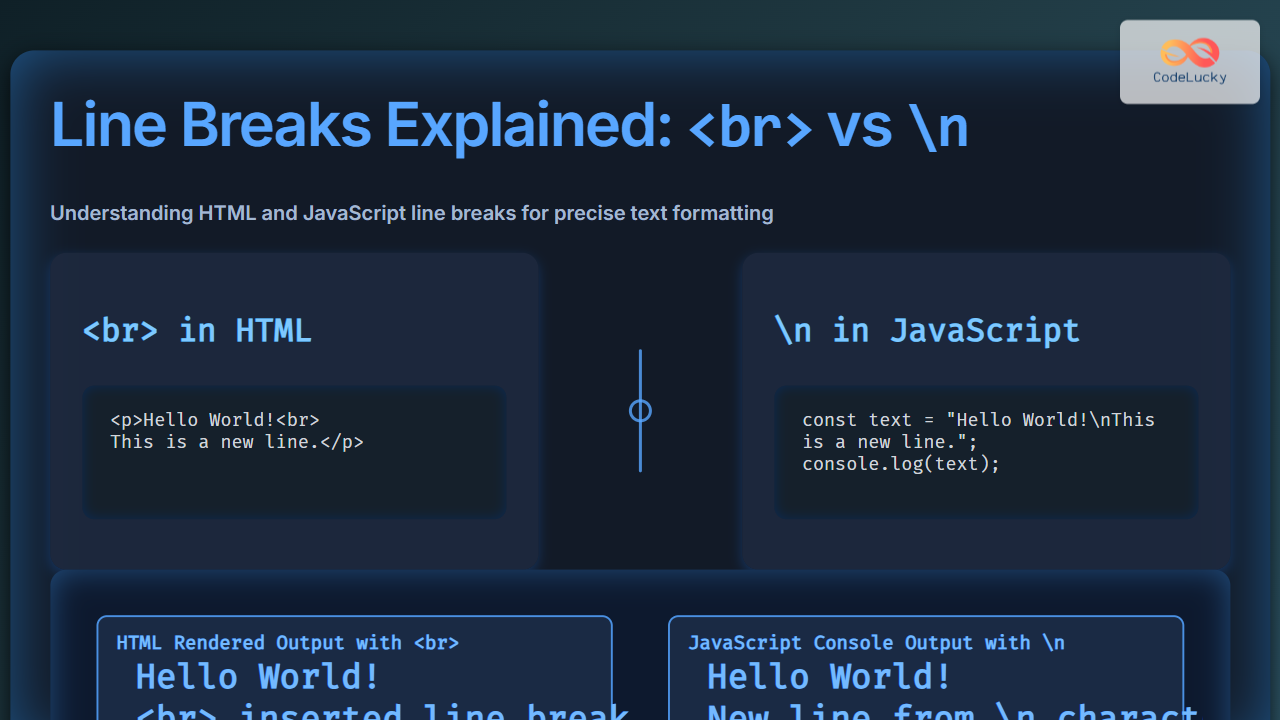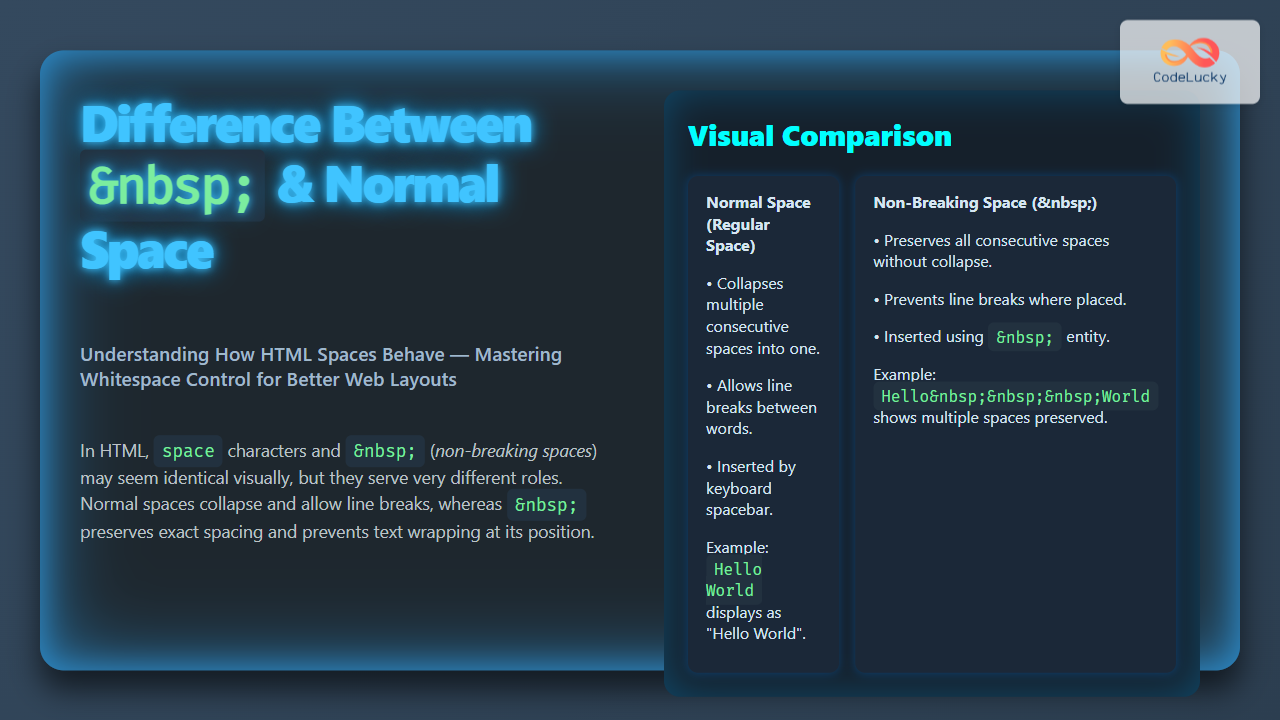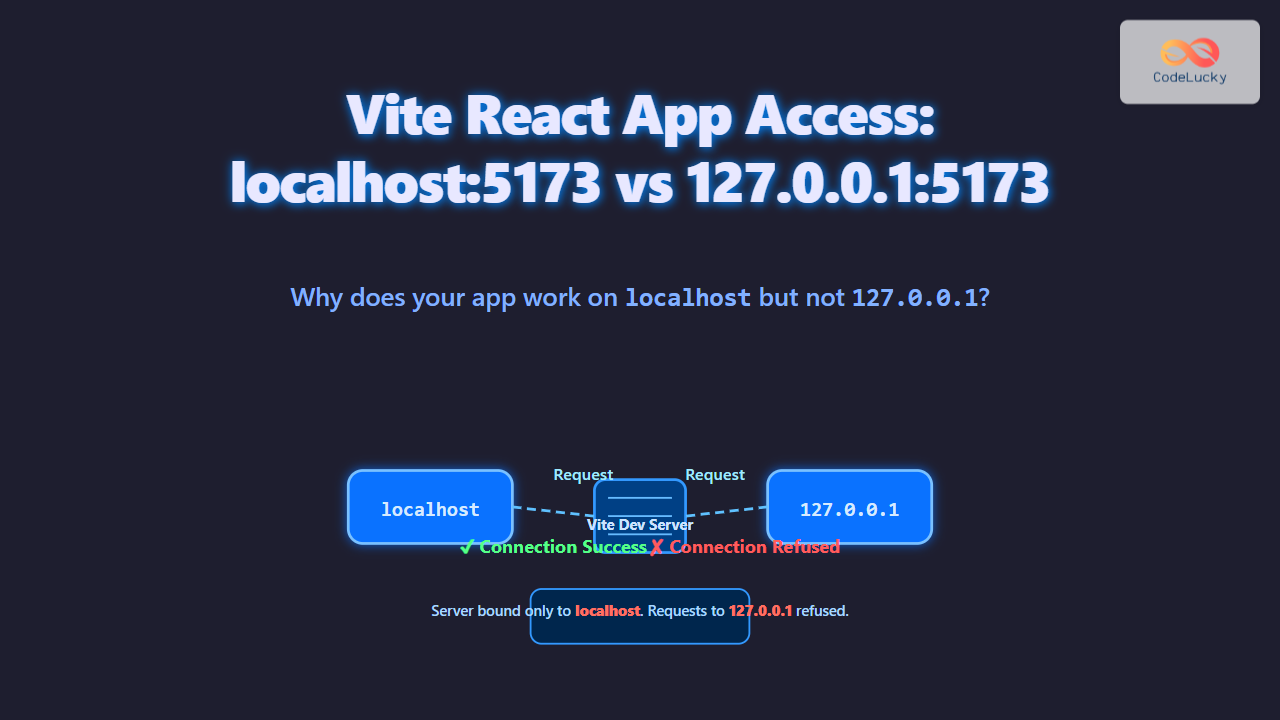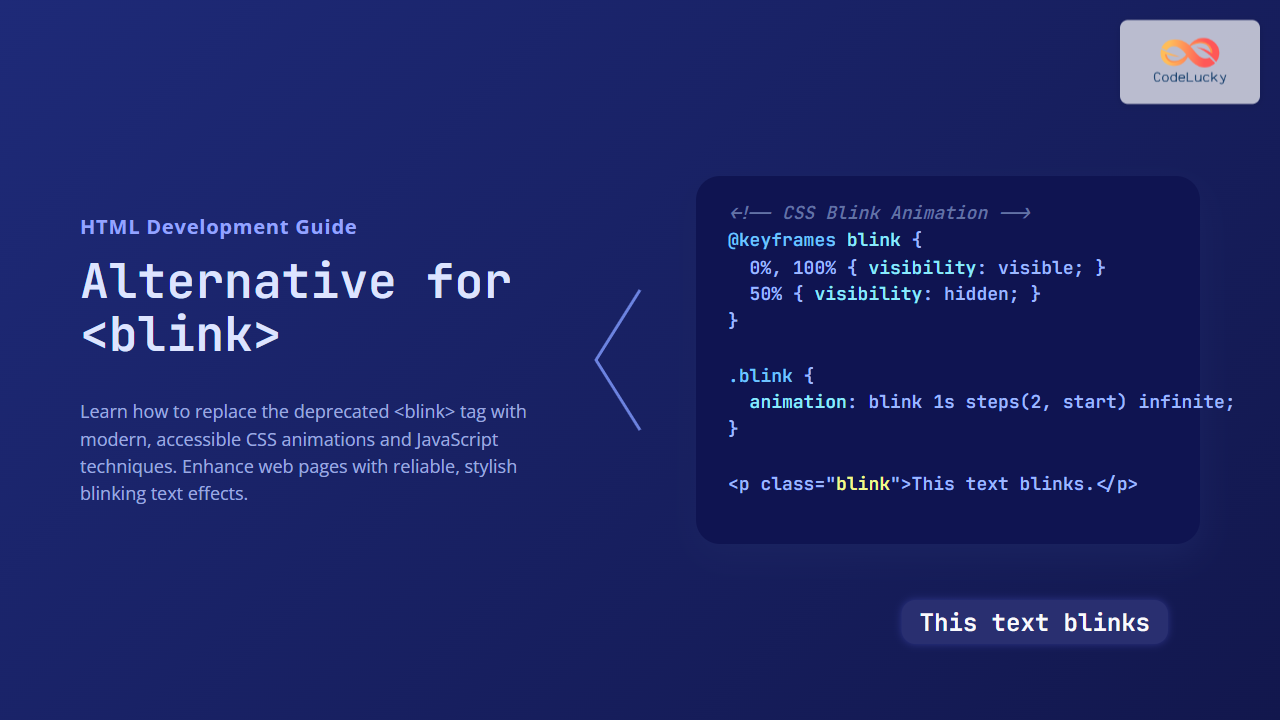HTML <caption> Tag
The <caption> tag in HTML is used to define a title or caption for a table. It provides a brief description of the table's content and helps users understand the purpose and context of the data presented in the table. The <caption> tag must be placed immediately after the opening <table> tag. It is an essential element for improving the accessibility and usability of your HTML tables.
Syntax
<table>
<caption>Table Caption</caption>
<tr>
<th>Header 1</th>
<th>Header 2</th>
</tr>
<tr>
<td>Data 1</td>
<td>Data 2</td>
</tr>
</table>
Attributes
| Attribute | Value | Description |
|---|---|---|
| align | left, right, top, bottom | Specifies the alignment of the caption relative to the table. Note: This attribute is deprecated in HTML5. Use CSS for styling instead. |
Example
<table>
<caption>Monthly Sales Report</caption>
<tr>
<th>Month</th>
<th>Sales</th>
</tr>
<tr>
<td>January</td>
<td>$1000</td>
</tr>
<tr>
<td>February</td>
<td>$1200</td>
</tr>
</table>
More Examples
Styling with CSS
While the align attribute is deprecated, you can use CSS to position and style the caption for modern web design.
<style>
table {
border-collapse: collapse;
width: 100%;
}
th, td {
border: 1px solid black;
padding: 8px;
text-align: left;
}
caption {
text-align: center;
font-weight: bold;
margin-bottom: 10px; /* Space below caption*/
caption-side: top; /* Positions the caption above the table,default behaviour */
}
.bottom{
caption-side: bottom; /* Positions the caption below the table*/
margin-top: 10px;/*Space above caption*/
}
</style>
<table>
<caption>Styled Monthly Sales Report</caption>
<tr>
<th>Month</th>
<th>Sales</th>
</tr>
<tr>
<td>January</td>
<td>$1000</td>
</tr>
<tr>
<td>February</td>
<td>$1200</td>
</tr>
</table>
<table style="margin-top:20px">
<caption class="bottom">Styled Monthly Sales Report (Bottom)</caption>
<tr>
<th>Month</th>
<th>Sales</th>
</tr>
<tr>
<td>January</td>
<td>$1000</td>
</tr>
<tr>
<td>February</td>
<td>$1200</td>
</tr>
</table>
Complex Table with Detailed Caption
For larger tables, the caption can provide crucial context, such as date range or category.
<table>
<caption>
Detailed Sales Data for Q1 2024
<br/>
This table displays the total sales for each month in the first quarter of 2024.
</caption>
<thead>
<tr>
<th>Month</th>
<th>Category</th>
<th>Sales</th>
</tr>
</thead>
<tbody>
<tr>
<td>January</td>
<td>Electronics</td>
<td>$5000</td>
</tr>
<tr>
<td>January</td>
<td>Books</td>
<td>$1200</td>
</tr>
<tr>
<td>February</td>
<td>Electronics</td>
<td>$5500</td>
</tr>
<tr>
<td>February</td>
<td>Books</td>
<td>$1000</td>
</tr>
<tr>
<td>March</td>
<td>Electronics</td>
<td>$6000</td>
</tr>
<tr>
<td>March</td>
<td>Books</td>
<td>$1400</td>
</tr>
</tbody>
</table>
Browser Support
| Browser | Supported |
|---|---|
| Chrome | Yes |
| Edge | Yes |
| Firefox | Yes |
| Safari | Yes |
| Opera | Yes |
Notes and Tips
- The
<caption>tag should always be the first tag within the<table>element. - Use CSS for styling and positioning the caption rather than the deprecated
alignattribute. - The caption provides context, making tables more understandable, especially for users with screen readers.
- Use
<br>tag inside<caption>tag for multi-line descriptions - Place the
<caption>tag before the<thead>,<tbody>, or<tfoot>tags. - The
caption-sideCSS property offers flexibility for placing the caption above or below the table. - Ensure your table has a caption, especially in scenarios where complex data is presented.
- Write clear and concise captions to give a summary of the table.

